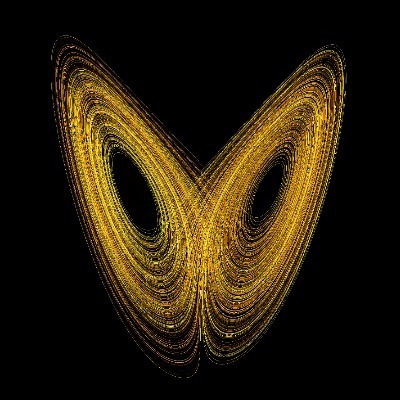Chaos theory is the idea that small changes at the beginning of an event can trigger drastic changes, deep and unpredictable over time.

Chaos theory seeks to explain phenomena that are not predictable (non-linear) and, for this reason, considered chaotic, as there is no way to control them. These systems, seen as complex and unstable, are based on "sensitivity to initial conditions", a phenomenon that characterizes the impossibility of predicting future results due to the subtle changes that may occur at the beginning of the processes.
Chaos theory can be related to various aspects of everyday life, such as climate change, the population growth, the financial market, among other situations that represent systems nonlinear.
The American meteorologist and mathematician Edward Lorenz (1917 - 2008) was the forerunner of studies on chaos theory. While performing simulations of the movement of air masses in a computer program, Lorenz noticed that by hiding just a few decimal places from the calculation he had done previously, the new end result was drastically different from the previous.
Even if the difference is insignificant at first, over time the changes would accumulate, generating an event totally different from what was initially predicted.
From these observations, Lorenz formulated a phrase that would come to represent the essence of chaos theory: "the flapping of a butterfly's wings in Brazil could cause a tornado in the United States".
In fact, the expression "butterfly Effect", which is commonly used to mark sensitivity in initial conditions, one of the most striking features of chaotic systems, would have originated from this phrase by Lorenz.
Learn more about Butterfly Effect.

